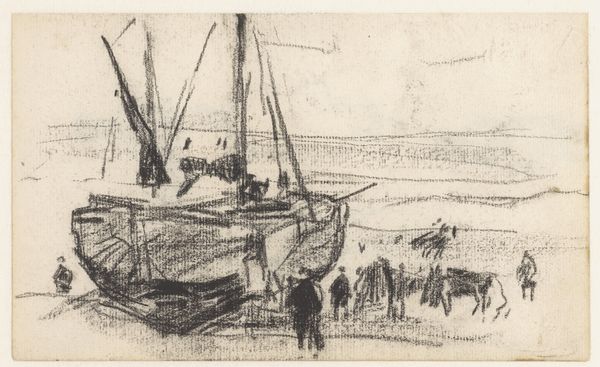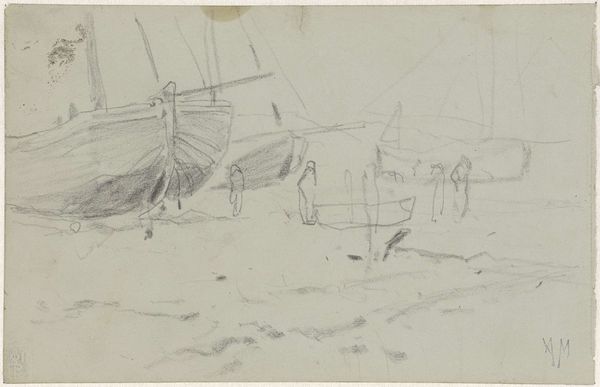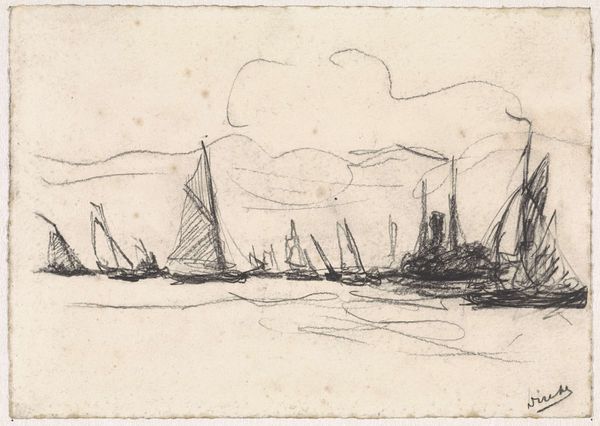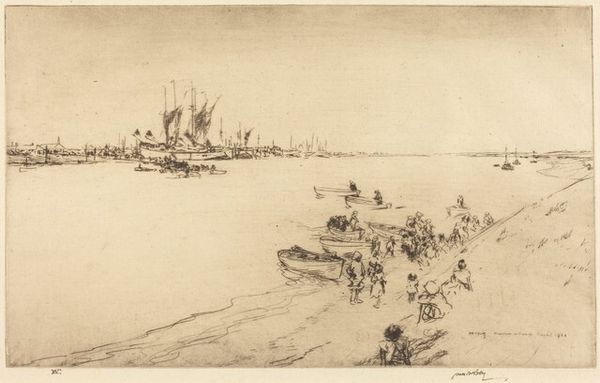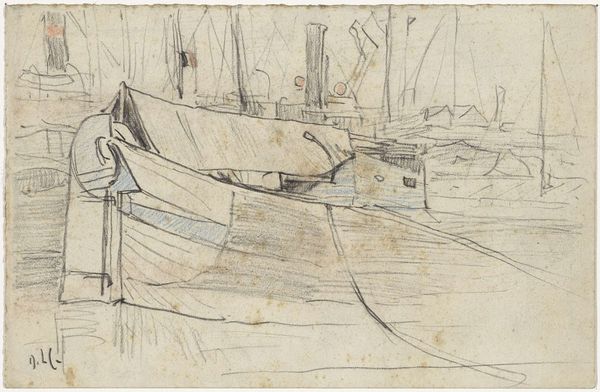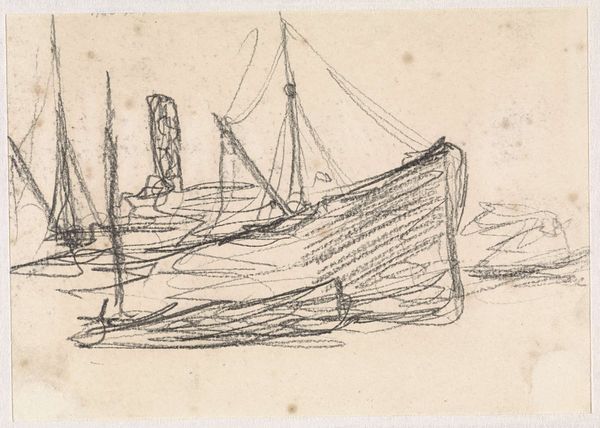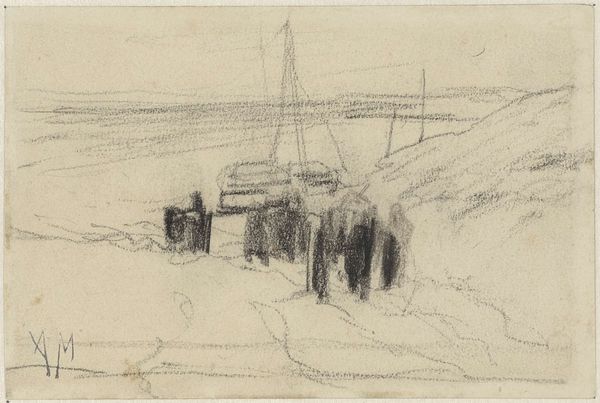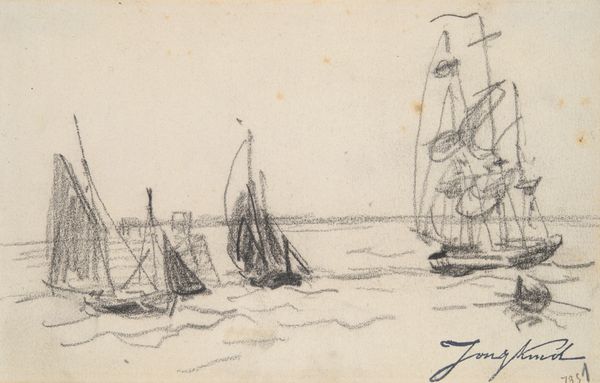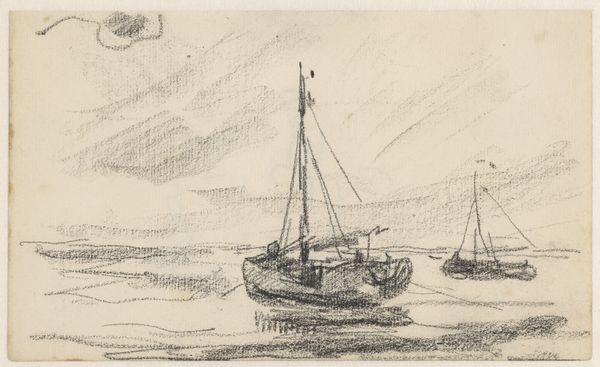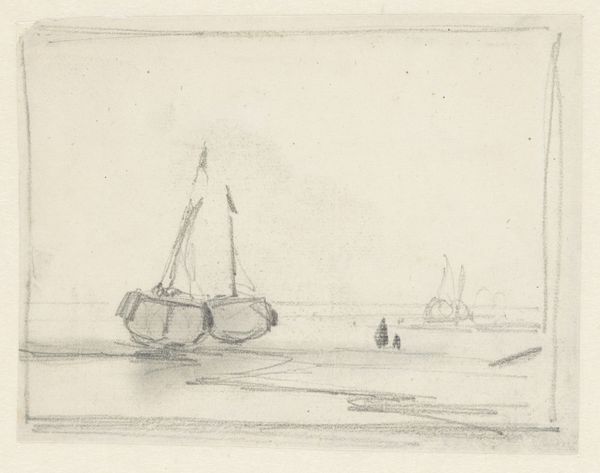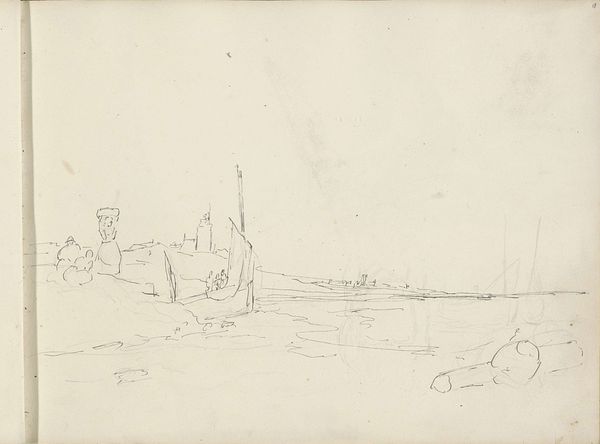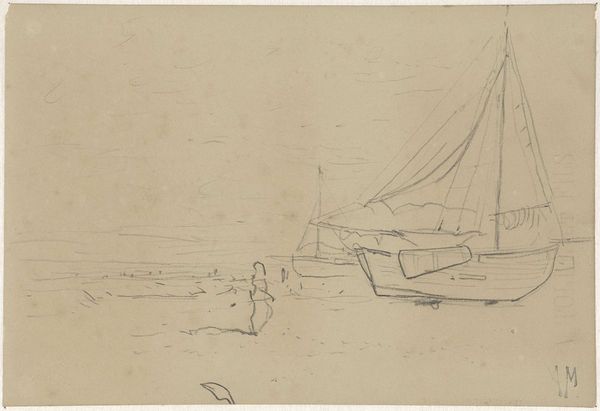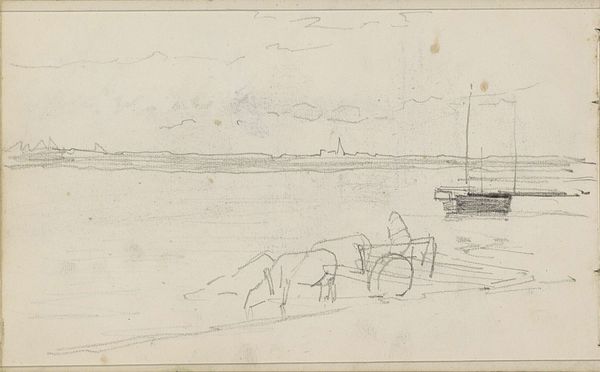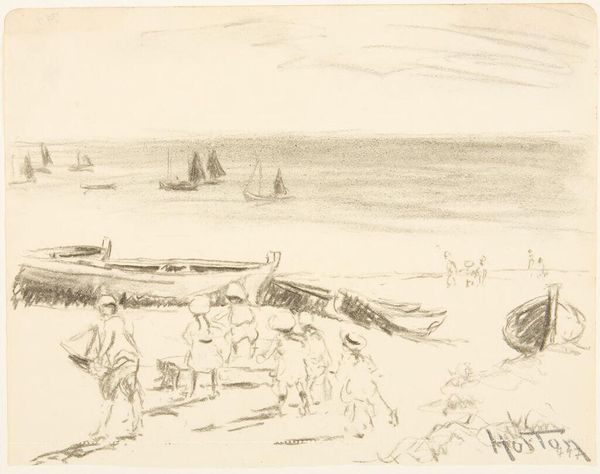
#
amateur sketch
#
light pencil work
#
pencil sketch
#
incomplete sketchy
#
etching
#
ink drawing experimentation
#
pen-ink sketch
#
horse
#
rough sketch
#
fantasy sketch
#
initial sketch
Dimensions: height 250 mm, width 347 mm
Copyright: Rijks Museum: Open Domain
Editor: This is "Fishing boats on the beach," a pencil drawing by Anton Mauve, made sometime between 1848 and 1888. It’s a pretty simple sketch, all grays and whites, but I find it evokes a certain weariness, the boats pulled up, the horses drooping. What can you tell me about it? Curator: This seemingly simple sketch actually carries significant weight when viewed through a socio-political lens. Look at the way the labor is depicted – the horses, the solitary figure struggling with what we can assume is fishing refuse or discarded gear. Do you see how the artist presents labor in this image, almost as an indistinguishable mass of bodies, animal and human both, contributing to industry? Editor: I guess so? I mostly just saw a bleak scene. Is there something specific Mauve was trying to say about labor conditions? Curator: Perhaps not explicitly, but we can consider the social context. This was a period of intense industrialization, impacting both urban and rural communities. Sketches like this can act as a window into the lived experiences of the working class and also animal exploitation of the time, the ever-present pressure for survival and productivity that disproportionately burdened certain groups. Editor: So, the sketch isn’t just about boats and horses, but about a larger societal issue? Curator: Precisely! Art often subtly reflects or challenges dominant ideologies. This scene, while seemingly quiet, speaks volumes about the human – and non-human – cost of industry and exploitation. How does it make you reconsider your initial impression of "weariness," now? Editor: It's interesting to think of it as more than just a sad scene. Seeing those implied issues makes it a powerful statement about its time. Curator: It highlights art's role in prompting conversations around social justice.
Comments
No comments
Be the first to comment and join the conversation on the ultimate creative platform.
